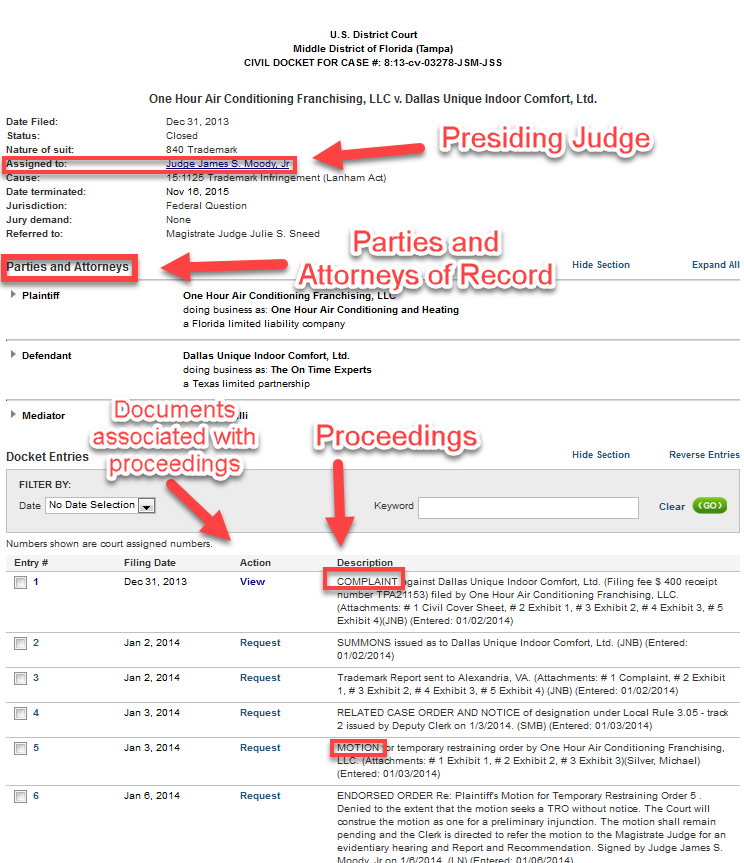The law librarians and library staff at Robert Crown Law Library are here to help you! You can find the latest information about our hours and services on the library homepage. There are several ways to contact us:
Zoom: Drop in to our virtual reference room during our Reference Desk hours to ask any questions.
Make an appointment: Online and in-person appointments with the reference staff can be made from the library homepage.
Email us:
Call us:
This guide is intended to provide an overview of how to conduct docket research on Bloomberg Law, Lexis CourtLink, and Westlaw. Additionally, this guide identifies sources for locating U.S. Supreme Court dockets.
Conducting federal docket research on Bloomberg Law ("BLAW") is strongly encouraged. BLAW should have the same information as PACER. PACER, provided by the Federal Judiciary, provides access to federal appellate, district, and bankruptcy court information via a centralized service. However, if you use the PACER service, then you incur a per-page charge based on the number of pages that result from your search and each requested report or document. A benefit to BLAW is that your subscription already covers those charges up to a limit of $1,500 per year. Additionally, there are more extensive search options available on BLAW.
State court coverage varies among the three databases so it is helpful to check coverage for each. You may find that a particular state court docket is available through Lexis CourtLink, but not through BLAW or Westlaw, for example.
A docket for a case identifies some basic case information (including party names, attorneys of record, and presiding judge). It also identifies court proceedings for that case in chronological order. These proceedings may include, for example, the filing of a complaint or motion or an order by the judge. Documents may be associated with these proceedings.
The screenshot below provide an example of a docket sheet, showing the basic case information at the top (e.g. date filed, judge assigned to the case, and parties and attorneys of record) followed by a table showing the docket entries of proceedings, associated documents (if any), and the dates of those proceedings.

If the resources discussed in this guide don't have the docket materials you need, you can check with the relevant court that the case was filed in. For materials that are not available online, contacting the court clerk is usually the best avenue to learn more about accessing docket materials from that court.
As always, you can also contact the reference help desk at reference@law.stanford.edu for further help and information.
©Stanford University, Stanford, California 94305.